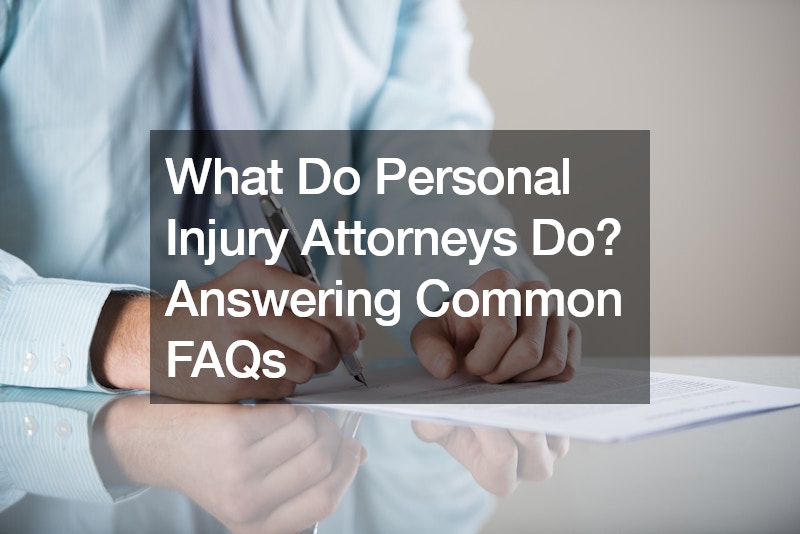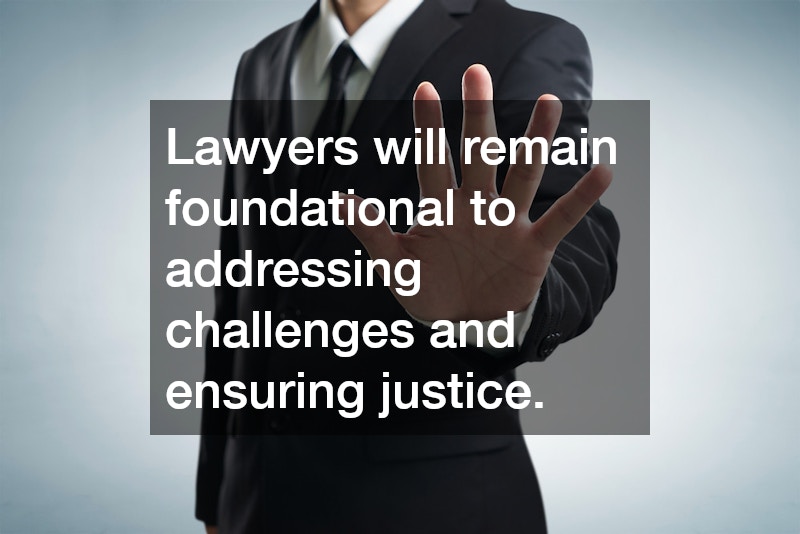
Introduction to Personal Injury Law
Personal injury law encompasses legal disputes that arise when an individual suffers harm from an accident or injury, and someone else might be legally responsible for that harm. This area of law aims to provide relief for victims who have been physically or emotionally injured due to the negligence or intentional actions of another party. Personal injury attorneys specialize in tort law, which includes both intentional acts and negligence cases. What do personal injury attorneys do? Let’s learn more about this area of law.
Who Are Personal Injury Attorneys?
Personal injury attorneys are legal professionals who represent clients who have been injured, either physically or psychologically, as a result of negligence or wrongdoing of another person, company, government agency, or any entity. What do personal injury attorneys do? These attorneys are experienced in handling cases related to accidents, medical malpractice, workplace injuries, and other incidents where someone is harmed due to another’s fault.

Types of Cases Handled by Personal Injury Attorneys
Personal injury attorneys handle a wide range of cases, including car accidents, medical malpractice, slip and fall accidents, and product liability cases. They also deal with workplace injuries and cases involving wrongful death. Each type of case requires specific legal knowledge and expertise, which personal injury attorneys possess.
The Role of a Personal Injury Attorney
What do personal injury attorneys do? A personal injury attorney’s primary role is to advocate for their client’s best interests throughout the legal process. This includes investigating the case, gathering evidence, interviewing witnesses, and negotiating settlements with insurance companies. They also represent clients in court if a fair settlement cannot be reached.
Initial Consultation with a Personal Injury Attorney
The initial consultation with a personal injury attorney is usually free. During this meeting, the attorney will assess the case, explain the legal options available, and provide an overview of the legal process. This is also an opportunity for the client to ask questions and determine if they feel comfortable working with the attorney.
Investigating the Case
After the initial consultation, the attorney begins a thorough investigation of the case. This involves collecting and reviewing medical records, accident reports, witness statements, and any other relevant documents. The attorney may also collaborate with medical experts, accident reconstruction specialists, and other professionals to build a strong case. What do personal injury attorneys do? They investigate and stand by you through your case.

Negotiating with Insurance Companies
One of the critical roles of a personal injury attorney is negotiating with insurance companies. Insurance adjusters often try to minimize the compensation paid to accident victims. A skilled attorney knows the tactics used by insurance companies and works to ensure that their client receives fair compensation for their injuries and damages.
Filing a Lawsuit
If a fair settlement cannot be reached through negotiation, the personal injury attorney may file a lawsuit on behalf of their client. This initiates the formal legal process, which includes discovery, depositions, and potentially a trial. The attorney will guide their client through each step of this process, ensuring they are well-informed and prepared.
Preparing for Trial
Preparation for trial involves meticulous planning and organization. What do personal injury attorneys do? The personal injury attorney will prepare opening and closing statements, examine and cross-examine witnesses, and present evidence to support their client’s case. This preparation is crucial for presenting a compelling case to the judge or jury.
The Trial Process
During the trial, both sides present their arguments, evidence, and witness testimonies. The personal injury attorney will advocate on behalf of their client, aiming to prove that the defendant is liable for the injuries sustained. The trial process can be lengthy and complex, requiring the attorney’s expertise and strategic planning.
Post-Trial Motions and Appeals
After a trial, there may be post-trial motions and appeals. If the verdict is not in favor of the client, the personal injury attorney can file an appeal to a higher court. This process involves challenging legal errors that may have occurred during the trial. The attorney continues to fight for their client’s rights and interests during this phase.
Settlements and Compensation
Many personal injury cases are settled out of court. Settlements can occur at any stage of the legal process, even after a lawsuit has been filed. What do personal injury attorneys do? The personal injury attorney will work to negotiate a fair settlement that adequately compensates the client for their injuries, medical expenses, lost wages, and pain and suffering.
Importance of Hiring a Local Attorney
What do personal injury attorneys do? They know your case inside and out. Hiring local attorneys is beneficial as they are familiar with the local laws, court procedures, and legal community. They can provide more personalized and accessible legal services. Local attorneys often have established relationships with local judges, opposing counsel, and experts, which can be advantageous in handling a personal injury case.
Choosing the Right Personal Injury Attorney
Choosing the right personal injury attorney is crucial for the success of a case. Potential clients should consider the attorney’s experience, reputation, and track record of success. They should also feel comfortable with the attorney’s communication style and approach to handling the case. A good personal injury attorney will provide compassionate and dedicated representation.
The Cost of Hiring a Personal Injury Attorney
Many personal injury attorneys work on a contingency fee basis, meaning they only get paid if they win the case. This arrangement makes legal representation accessible to those who might not afford it otherwise. Clients should discuss the fee structure and any other costs associated with their case during the initial consultation.

Common Misconceptions About Personal Injury Attorneys
There are several misconceptions about personal injury attorneys that can deter individuals from seeking the help they need. One common misconception is that personal injury attorneys are only interested in making money and do not care about their clients. In reality, many personal injury attorneys are deeply committed to helping their clients navigate the complex legal system and achieve fair compensation for their injuries.
Another misconception is that hiring a personal injury lawyer is expensive and unaffordable for most people. As mentioned earlier, many personal injury attorneys work on a contingency fee basis, meaning they only get paid if they win the case. This allows individuals who might not have the financial means to pay upfront legal fees to still have access to quality legal representation.
The Impact of Personal Injury on Victims
Personal injury can have a profound impact on victims, affecting their physical health, emotional well-being, and financial stability. Physical injuries can range from minor cuts and bruises to severe, life-altering conditions such as spinal cord injuries, traumatic brain injuries, and permanent disabilities. These injuries often require extensive medical treatment, rehabilitation, and ongoing care.
Emotionally, victims may experience anxiety, depression, and post-traumatic stress disorder (PTSD) as a result of their injuries and the trauma associated with the accident. The emotional toll can be just as debilitating as the physical injuries, impacting the victim’s quality of life and ability to function daily.
The Importance of Documentation in Personal Injury Cases
Proper documentation is crucial in personal injury cases. It helps establish the facts of the case, prove liability, and demonstrate the extent of the victim’s injuries and damages. Personal injury attorneys advise their clients to keep detailed records of all medical treatments, expenses, and any correspondence related to the accident and their injuries.
Medical records, including doctor’s notes, diagnostic tests, and treatment plans, are essential for proving the nature and severity of the injuries. Accident reports, witness statements, and photographs of the accident scene can help establish how the accident occurred and who was at fault. Financial records, such as receipts for medical expenses and records of lost wages, are necessary for calculating the compensation owed to the victim.
How Personal Injury Attorneys Build a Case
Building a strong personal injury case involves several key steps. First, the accident attorney conducts a thorough investigation to gather all relevant evidence and information. This includes reviewing medical records, accident reports, witness statements, and any available video footage or photographs of the accident scene.
Next, the attorney identifies all potentially liable parties and assesses the extent of their liability. This may involve consulting with experts in various fields, such as accident reconstruction specialists, medical professionals, and economists, to provide expert testimony and support the case.
The attorney then calculates the total damages incurred by the victim, including medical expenses, lost wages, pain and suffering, and any future costs related to the injury. This calculation helps determine the amount of compensation to seek in negotiations or at trial.
The Benefits of Settling a Personal Injury Case
Settling a personal injury case can offer several benefits to the victim. One of the primary advantages is that it provides a quicker resolution compared to going to trial. Trials can be lengthy and uncertain, whereas settlements can often be reached in a matter of months.
Settling a case also provides a guaranteed outcome, allowing the victim to avoid the risk of losing at trial. This certainty can be particularly important for victims who need immediate financial relief to cover medical expenses and other costs.
Challenges Personal Injury Attorneys Face
What do personal injury attorneys do? They face challenges head-on. Personal injury attorneys face several challenges in their work. One of the main challenges is dealing with insurance companies that often employ aggressive tactics to minimize payouts. Insurance adjusters may dispute the extent of the victim’s injuries, question the necessity of certain medical treatments, or argue that the victim was partially or fully at fault for the accident.
Another challenge is the complexity of personal injury cases, which often involve intricate legal and medical issues. Personal injury attorneys must have a deep understanding of both the law and medical science to effectively represent their clients. They must also stay up-to-date with changes in laws and regulations that may impact their cases.

How to Find a Personal Injury Attorney
Finding the right personal injury attorney is crucial for the success of a case. One way to find a qualified attorney is through referrals from friends, family, or other trusted sources. Personal recommendations can provide valuable insights into the attorney’s experience, communication style, and effectiveness.
Another option is to research local attorneys online. Any law firm should have a website that provides information about their practice areas, attorney profiles, and client testimonials. Online reviews and ratings can also offer helpful feedback from past clients.
Questions to Ask a Personal Injury Attorney
When meeting with a personal injury attorney, potential clients should ask several key questions to ensure they are making an informed decision. Some important questions to ask include:
- How many years of experience do you have in handling personal injury cases?
- Have you handled cases similar to mine before? What were the outcomes?
- What is your approach to negotiating with insurance companies?
- How do you communicate with clients throughout the case? How often can I expect updates?
- What is your fee structure? Are there any upfront costs or hidden fees?
The Role of Technology in Personal Injury Law
Technology plays an increasingly important role in personal injury law. Advanced tools and software can help attorneys manage their cases more efficiently and effectively. For example, case management software can streamline the process of organizing and accessing case files, tracking deadlines, and communicating with clients.
Technology also enhances the ability to gather and present evidence. High-resolution photographs, video footage, and 3D accident reconstruction can provide compelling visual evidence to support the victim’s case. Medical software can help demonstrate the extent of injuries and the impact on the victim’s life.
The Future of Personal Injury Law
The field of personal injury law is continually evolving, and several trends are shaping its future. One significant trend is the increasing use of technology, as mentioned earlier. Technology will continue to enhance the efficiency and effectiveness of legal practice, allowing attorneys to better serve their clients.
Personal injury attorneys play a vital role in helping victims of accidents and negligence receive the compensation they deserve. By understanding what do personal injury attorneys do and how they can assist with various types of cases, individuals can make informed decisions about seeking legal help. Whether negotiating with insurance companies or representing clients in court, personal injury attorneys are dedicated to achieving the best possible outcomes for their clients. If you ever find yourself asking, “What do personal injury attorneys do?” rest assured that their primary goal is to protect and advocate for your rights throughout the legal process.



